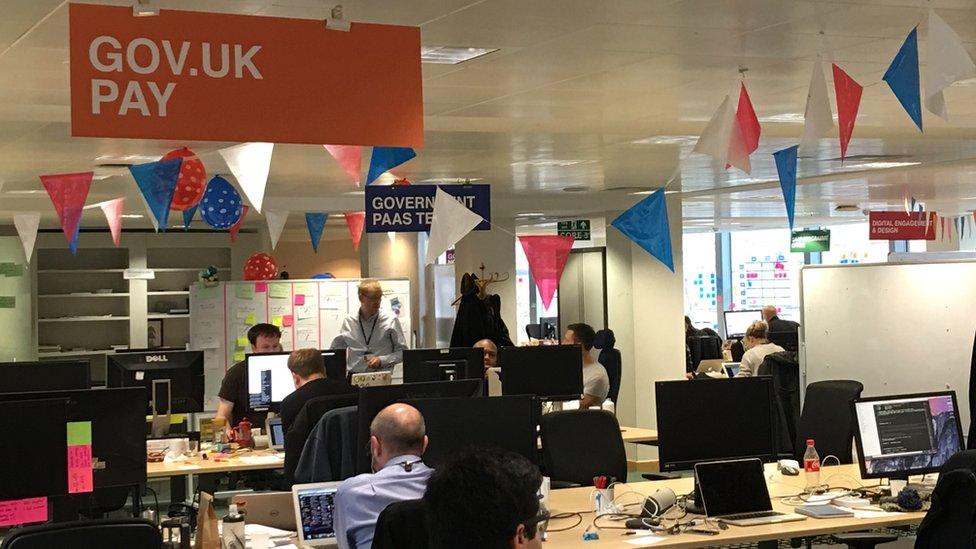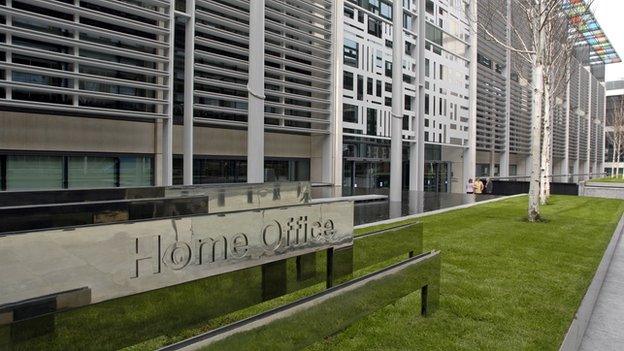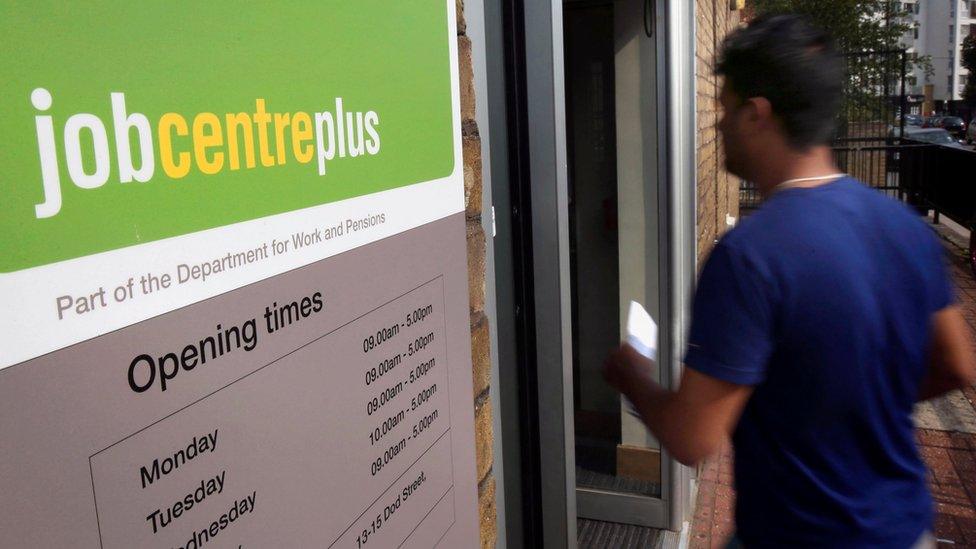Government IT - has the war on waste stalled?
- Published

We know what all too often happens to big IT projects in the public sector - they almost inevitably end up overspent, delayed and not fit for purpose.
But all that changed, according to the government, when new controls on spending were introduced. Now it seems that the bad old days could be coming back with reports that one major department has a huge IT overspend.
Back in 2010 the GDS, the Government Digital Service, was given the task of sprucing up the way the Civil Service provided online services.
It was also given oversight of any digital project spending more than £100,000, and set about questioning a Civil Service philosophy that had seen hugely expensive long-term contracts signed with major providers like Fujitsu and Microsoft, along with massive overspends on government websites.
One former GDS executive describes this way of thinking as "government doesn't do tech, let's buy it in from big IT suppliers." Instead, the new approach was to encourage smaller, more adaptable projects, which involved bringing expertise inside government.
The £100,000 threshold - which applied to digital services not big hardware projects - might seem rather low, but the former executive explains: "you can do a lot of harm with a poorly designed service, even if it's cheap."

The Government was criticised for renewing its contract with Fujitsu.
But this approach, and the perceived arrogance of GDS, has caused huge resentment across Whitehall.
Over the last year or so, there has been a fight-back, with departments demanding more control over their own IT plans. At the same time, there's been an exodus of many senior GDS staff, including the founding director general Mike Bracken and his successor Stephen Foreshew-Cain.
Now the new boss Kevin Cunnington, who came from a senior job at the Department for Work and Pensions, has started to give a flavour of some of his thinking. What he has said about spending limits confirms the fears of some former GDS staff that the organisation is being emasculated.
He told Computer Weekly, external that the £100,000 threshold for digital projects to be examined by GDS looked too low and said there needed to be a more collaborative approach with spending departments.
"We are more comfortable that departments have created their own capability. It's about having a proper grown-up discussion around roadmaps in the future," he said.
IT 'self harm'
The former GDS executives who are disturbed by this change of tack would not go on the record. But Simon Wardley, an influential advisor to governments on IT departments and co-author of "Better for Less" - seen as the manual for the original GDS approach - told me this:
"Spend control is a point of learning and co-ordination that is essential to stopping self harm in IT. Relaxing such controls can be a dangerous path that leads to an abyss of profligate waste"
Other critics point to two recent examples of what they see as a return to the bad old days.

The government has been accused of overspending on its IT programme.
First, Mr Cunnington's old department seems to have run into more problems with its IT programme. I'm told that in the last week DWP staff have been called into meetings to be told of a massive overspend - as much as £250m in the current year.
The result, they learned, is that work on a number of projects is being halted and hundreds of freelance contractors have been laid off.
One contractor who is being let go told me: "civil servants will not take responsibility for anything and there seem to be no consequences for actions. Good contractors have been let go, It will take a long time to recover from the reputational damage this has done."
'no actual overspend'
A spokesman for DWP denied there was any overspend, and said: "We routinely review our work to ensure that we focus our resources on the most viable options and deliver the best value for the taxpayer.
"This year we are on track to deliver record digital transformation on a scale larger than most FTSE 100 companies."
Of course, there is no actual overspend until the sums are done in March 2017 - and by then that process of focussing on "the most viable options" could have brought the DWP back within budget.
The other case that critics of the new GDS regime point to is the renewal of the Home Office's contract with the giant IT supplier Fujitsu, external,
This contract, first signed in 2000, is just the kind of deal the old regime at GDS wanted to end.
"As technology changes these kind of contracts become less effective," the former GDS executive explained to me.
"So we don't strike 10 year deals any more."

The home office said the culture was changing.
The Home Office gave me a statement saying: "we are ending the culture of awarding large IT contracts to single suppliers and instead working towards smaller, more flexible agreements with a broader list of companies. As we make this change, it is important we ensure a smooth transition to these new services."
Nevertheless, there are concerns that the pace of change is slowing - or even coming to a halt.
Changing the course of the super-tanker that is government IT spending was always going to be a long and arduous task.
But the fear amongst former GDS staff is that the old Whitehall crew have wrenched back control of the tiller.
- Published1 August 2016

- Published20 July 2016

- Published11 February 2016